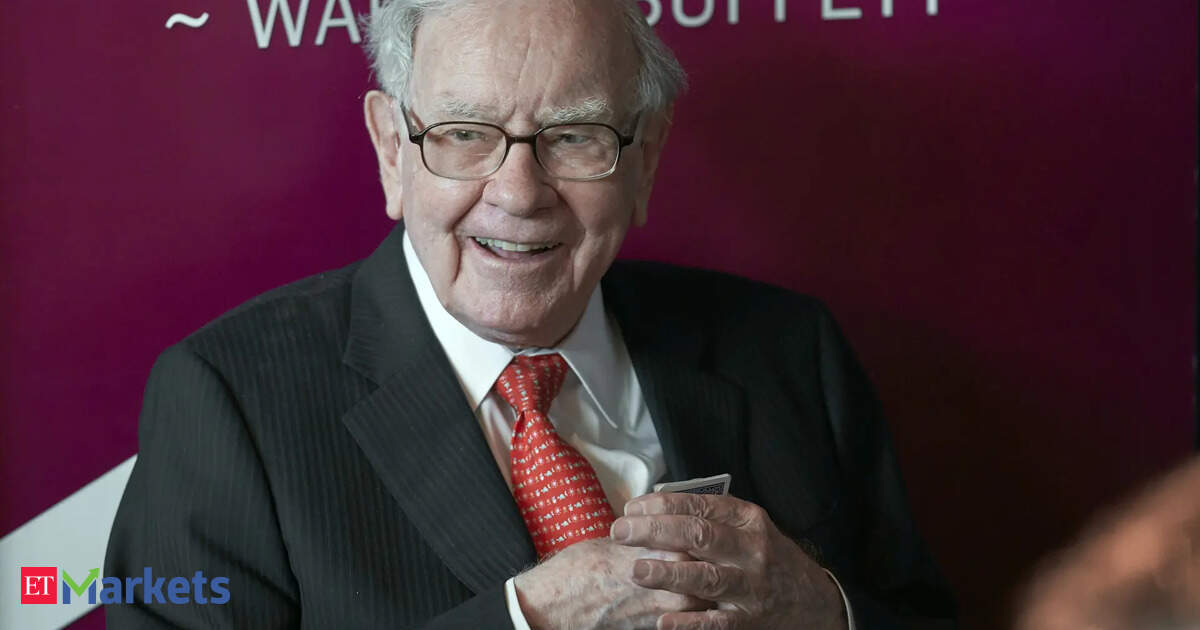Buffett’s investing wisdom, distilled over decades, emphasises restraint over reaction, simplicity over strategy, and time as the most dependable compounding force. In an environment where fund flows often chase headlines and past performance tables, his principles remain a sharp counterpoint, and arguably, more relevant than ever.
1. Let cost guide you
In his 2016 shareholder letter, Buffett delivered a stinging assessment of the asset management industry: “When trillions of dollars are held by Wall Street managers who charge huge fees, the real profits usually accrue to the managers, not to the investors.”His endorsement of low-cost index funds, particularly for those unwilling or unable to scrutinise markets full-time, has been consistent. Posthumously, he has said, 90% of his personal fortune is to be allocated to S&P 500 index funds, and only the cheapest kind.
In India, the implications are clear. Large-cap index funds tracking the Nifty 50 or Sensex offer broad market exposure at a fraction of the cost of actively managed schemes, with higher tax efficiency and lower tracking error in the long run.
2. Time, not timing
“Only buy something you would be happy to hold if the market closed for the next 10 years.” This often-cited line captures Buffett’s disdain for market timing and his belief in the power of duration.For mutual fund investors, the lesson is unambiguous: avoid frequent portfolio reshuffling, select schemes with robust long-term performance, and allow them the runway to deliver. Switching funds to chase near-term returns is, in Buffett’s view, self-defeating.
“Give time to a good investment, and time will be your best friend,” Buffett says.
3. Intelligence is overrated
Buffett has long maintained that successful investing owes more to temperament than intellect. “Investors should be able to separate themselves from the fear or excitement of the crowd, and focus on a few basic principles,” he wrote in 1996.
For mutual fund participants, the prescription is clear: regular SIPs, realistic expectations, and emotional discipline. In other words, no CFA charter is required.
4. Detach from daily noise
“Watching the market too closely can be harmful.” Buffett has warned of the dangers of hyper-monitoring, noting how short-term volatility can breed panic and impulsiveness.
He is famously dismissive of overreaction: “The stock market is a device for transferring money from the impatient to the patient.”
Fund investors, he suggests, should ignore daily NAV updates, resist reacting to headlines, and trust the process. SIPs work best when left undisturbed.
Also read: How Jane Street targeted over 40 Nifty, Nifty Bank stocks in expiry-day trades
5. Panic is a buying opportunity
“Be fearful when people are greedy, and greedy when people are fearful,” Buffett once said, a philosophy that turns crisis into opportunity.
In market downturns, when most investors withdraw, Buffett sees value. “Fear is your friend when investing in quality at a discount.” Mutual fund investors would do well to continue their SIPs during corrections and consider additional allocations. The best returns often follow the worst headlines.
6. Know what you own
“Risk comes from not knowing what you’re doing.” Buffett’s remark underscores the importance of understanding one’s investments, a frequent blind spot in mutual fund portfolios.
Fund type, sector exposure, and volatility characteristics matter. Sectoral and small-cap funds demand longer horizons; international funds carry currency risks. Chasing last year’s winners without understanding their structure, Buffett warns, is an invitation to disappointment.
“The first rule of investing is don’t lose money, and the second rule is don’t forget the first.”
7. Forecasts reveal more about the forecaster
Buffett has made no secret of his disdain for predictions. “Forecasts may tell you a great deal about the forecaster; they tell you nothing about the future.”
Mutual fund investors, in his view, should not reallocate based on short-term rankings or macro calls. A fund’s performance over six months says little about its suitability over ten years. Steadiness, not speculation, wins the day.
Beyond the numbers
Buffett’s philosophy is not anchored in the mechanics of mutual funds but in the principles that underpin all sound investing: cost, time, clarity, and composure. His rules, though simple, are anything but simplistic. They ask investors to resist distraction, eschew complexity, and commit with conviction.
Also read | Warren Buffett’s billion-dollar EV play backed BYD, so why not Tesla?
For those seeking to build wealth through mutual funds, the path is not paved with forecasts or fast trades, but with a patient alignment to fundamentals. That, Buffett would argue, is where the real compounding begins.
(Disclaimer: Recommendations, suggestions, views and opinions given by the experts are their own. These do not represent the views of the Economic Times)


